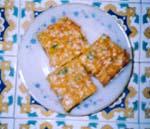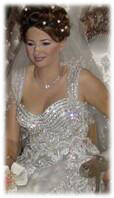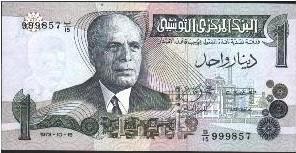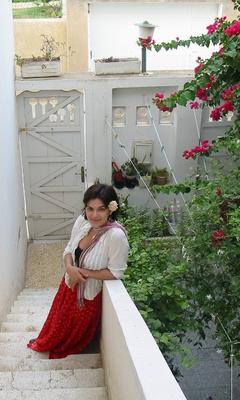"Al-hamdu lil-Allah"
So, I did something really stupid today...
I have been using my Ipod Shuffle as a flash drive at the local internet cafes, to transport files (such as blog posts) back and forth. I was really paranoid that someday I might forget to unplug the thing when I was done and lose my music and all my important files, not to mention the $100 piece of hardware.
 I have been known to lose things before... even big things, like cars. And, getting my digital camera stolen the first week I was here also made an impression.
I have been known to lose things before... even big things, like cars. And, getting my digital camera stolen the first week I was here also made an impression.
Anyway, I thought I was being really conscientious and therefore safe, but today I left the Ipod in computer #8 at my favorite internet cafe in downtown Tunis. I realized it about five hours later, panicked briefly, and then caught the train back downtown to get to the internet cafe before it closed for the night.
I'm a regular there, they know me, they would recognize the "flash" as mine, maybe somebody noticed it and tucked it away for me, and there's some small chance that it's not actually gone forever. Slim, but worth a shot.
I got to the cafe, and told the woman in charge that "Indi mushkilah kabiirah." (Literally, "a big problem is upon me.") She said something in French, of which I caught the word "flash," and from her facial expression I could tell it had indeed been found and put aside for me. A wave of relief swept over me and I found that I did in fact, have the words in Arabic to express what I was feeling:
Al-hamdu li-Allah!
This phrase, "Thanks be to God," is used all the time in Tunisian culture, whenever something good happens or someone else tells you something good happened to them. In fact, it's a shortcut for saying that whatever you're talking about turned out well. "How's your health?" "Al-hamdu li-Allah."
I have been using my Ipod Shuffle as a flash drive at the local internet cafes, to transport files (such as blog posts) back and forth. I was really paranoid that someday I might forget to unplug the thing when I was done and lose my music and all my important files, not to mention the $100 piece of hardware.
 I have been known to lose things before... even big things, like cars. And, getting my digital camera stolen the first week I was here also made an impression.
I have been known to lose things before... even big things, like cars. And, getting my digital camera stolen the first week I was here also made an impression. Anyway, I thought I was being really conscientious and therefore safe, but today I left the Ipod in computer #8 at my favorite internet cafe in downtown Tunis. I realized it about five hours later, panicked briefly, and then caught the train back downtown to get to the internet cafe before it closed for the night.
I'm a regular there, they know me, they would recognize the "flash" as mine, maybe somebody noticed it and tucked it away for me, and there's some small chance that it's not actually gone forever. Slim, but worth a shot.
I got to the cafe, and told the woman in charge that "Indi mushkilah kabiirah." (Literally, "a big problem is upon me.") She said something in French, of which I caught the word "flash," and from her facial expression I could tell it had indeed been found and put aside for me. A wave of relief swept over me and I found that I did in fact, have the words in Arabic to express what I was feeling:
Al-hamdu li-Allah!
This phrase, "Thanks be to God," is used all the time in Tunisian culture, whenever something good happens or someone else tells you something good happened to them. In fact, it's a shortcut for saying that whatever you're talking about turned out well. "How's your health?" "Al-hamdu li-Allah."






